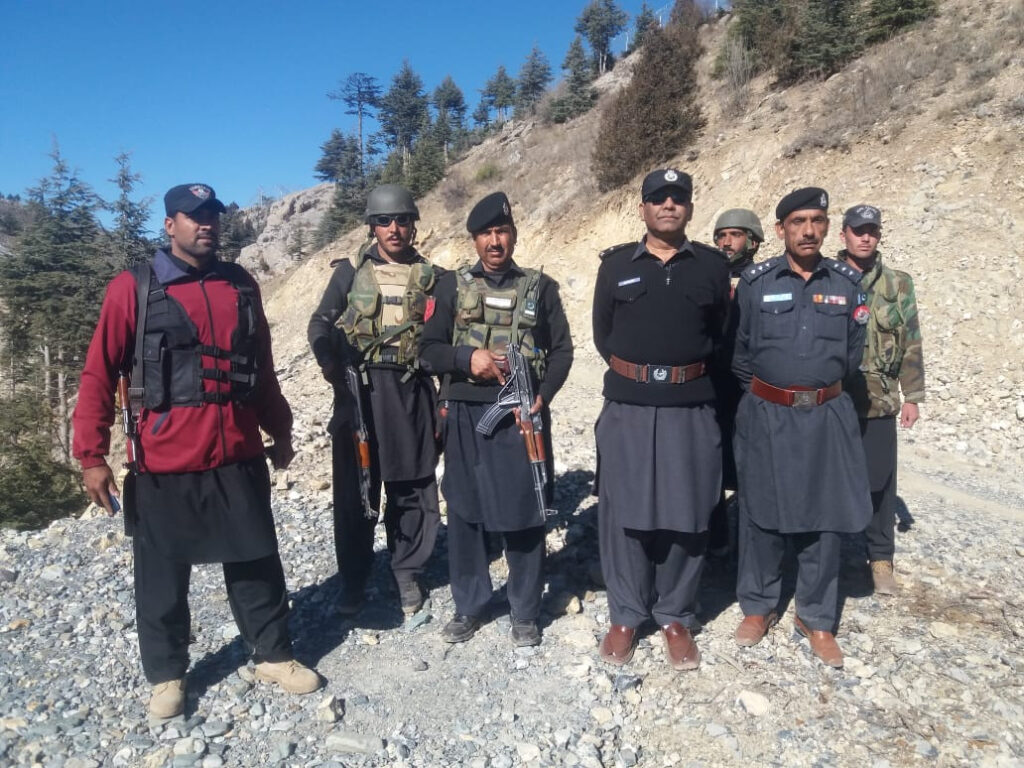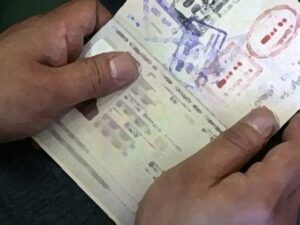PUBLISHED
January 12, 2025
PESHAWAR:
When the erstwhile FATA agencies were merged into the national mainstream in 2018, along with rights, a functional criminal justice system and an effective police force was promised to the citizens. In 2025, with the looming shadows of terrorism in newly merged districts (NMDs), and instability especially in areas like Kurram, the question is whether the promise of change will actually come to pass, or if it will simply stay a promise.
I talked to Quraish Khan, a celebrated Police officer, who is in-charge of looking after the reform process in the NMDs.
MZ: Could you begin by outlining the strategic efforts made to increase the ability of law enforcement to operate in these areas?
QK: The completion of the Rule of Law Roadmap, which offers a tactical framework for implementing reform, has been a significant endeavor. In order to meet particular local demands, we have also created district-specific policing programmes. Additionally, we are working to professionalise investigations by implementing a standing order that establishes a mentorship programme specifically designed for the NMD police.
MZ: What are the challenges you faced when putting these measures into practice?
QK: There were numerous problems, some administrative, some socio-cultural. Before 2022, there was no designated senior police leadership assigned to steer the strategic direction of the Police in NMDs. To fill this gap, the seat of Assistant Inspector general of Police (AIG) NMDs was created, which is currently what I am looking after. Progress was further impeded by the PSP officers’ delayed posting as District Police Officers (DPOs). Another problem has been opposition from former Levies and Khasadar staff, who at first objected to the regular police assuming positions like SHOs and IOs. This resistance was expressed in form of unionism and reluctance to change. Last but not least, there is a serious concern about the inadequate infrastructure, as Levies posts do not match the requirements of contemporary police stations.
MZ: How are you using training and legislation to overcome these obstacles?
QK: First and foremost, we have brought all police stations in the NMDs under the Police Rules. Police Officers in NMDs have received standardised training in fundamental policing techniques as part of a priority training programme. Notably, the Educational Testing and Evaluation Agency (ETEA) has recruited 2,736 officers on purely merit, in the interest of openness, and setting benchmarks for future hiring. There are now 80 functioning police stations in NMDs, and the Shahkas Police Training School caters to their training needs. This institution can train up to 800 policemen and women on a rolling basis.
MZ: What about gender parity?
QK: Women’s reporting centres have been set up in Khyber and Kurram, and 70 female police officers have been hired. There are social barriers to overcome reluctance about women’s access to justice because these are conservative communities where one must go cautiously and in accordance with local customs. We are gradually getting past that.
MZ: In these areas, community engagement is essential. In this context, what actions have been taken?
QK: Community policing has worked really well. By using local officers who are aware of the social and cultural dynamics, our methodology breaks down barriers between the public and the police. Dispute Resolution Councils (DRCs) are in place and are essential in settling small conflicts, which builds community relationships and trust.
MZ: Which particular capacity-building initiatives have been put in place to improve police performance?
QK: Every one of the 25,000 police officers in the NMDs has had extensive training. To ensure ongoing professional development, an investigation mentorship programme is also being developed. Frequent ETEA-based hiring guarantees a consistent flow of competent and skilled workers.
MZ: Has technology been a major factor in these changes?
QK: Of course. Both the Human Resource Information Management System (HRIMS) and the Police Station Record Management System (PSRMS) have been put into place and are now operating. Video conferencing has become a standard feature that improves the effectiveness of communication. There are now specialised units including the Frontier Reserve Police (FRP), Elite Force, Bomb Disposal Unit (BDU), Special Branch (SB), and Counter-Terrorism Department (CTD). In addition, women have been hired, and there are now operational women’s reporting centres in Khyber and Kurram.
MZ: All of this sounds good, but how has your policing changes in the NMDS actually affected anything? What is the yardstick for evaluating the effectiveness of these measures, if I may ask?
QK: The repeal of the idea of Ilaqa Ghair, or “no man’s land,” has been one of the reforms’ most notable effects. As a result, there are no longer any uncontrolled areas in the area that were once used as safe havens for convicted criminals from other regions. Ilaqa Ghairs are no longer present in the NMDs; instead, police and related law enforcement agencies are present everywhere.
MZ: However, has this in fact improved the residents’ quality of life in any way?
QK: The police presence is now more noticeable and robust across the NMDs, and frequent patrols have increased popular trust. Better control over law and order issues has resulted from this increased presence as well as the implementation of anti-riot measures. Citizens of NMDs now have a place to go for individual grievance redress in the event of a problem. The Jirga was a collective institution that placed more emphasis on tribal customs and traditions than it did on individual rights.
MZ: What is the status of mechanisms to address the reporting and prosecution of crimes?
QK: We have implemented crime registration programmes, which have resulted in number of unreported offenses to significantly decrease. Police investigation and prosecution have been put in place on standards at par with the rest of the country, though challenges continue to arise. However, these challenges are being addressed expeditiously.
MZ: Has the coordination between law enforcement agencies improved?
QK: Of course. There has been a significant improvement in the coordination and exchange of information between law enforcement authorities. This has made it possible to combat crime and uphold security in a more coordinated and efficient manner.
MZ: How about conflict resolution procedures?
QK: One significant advancement has been the creation of Dispute Resolution Councils. These councils have successfully closed the void left by the old-fashioned Jirga system by offering a structured and easily accessible way to settle disputes.
MZ: Have there been any efforts for introducing gender-responsive policing?
QK: We are fully on-board for gender-responsive policing. We want women to feel safer, and we have to reduce violence against women- there is no second opinion about that. It will take a while to reach fruition, but at least the first steps have been taken.
MZ: How have job prospects been affected by these reforms?
QK: Within the criminal justice system, the reforms have led to the creation of new job possibilities, especially in the legal and police fields. As the older police officers from the NMDs retire, the merit compliant processes put in place will guarantee that fresh young, more educated and energetic officers will join the police force.
MZ: What impact have these changes had on how the merger is perceived by the general public?
QK: The advantages of these reforms have helped to reduce anti-merger sentiment over time. More people are accepting the merger as they start to realise the real benefits of better governance, security, and justice systems.
MZ: We have all seen the Kurram situation become national news- what role has the Police played in resolving this?
QK: Kurram is the legacy of decades of complex, intertwining factors, and requires a multi factorial response; only one aspect of many complicated issues is the nascent Police force in Kurram. Even then, Police in Kurram has become a major player of the peace process, and has been involved in every aspect of bringing about the peace process. Peace in Kurram would not have been possible without the active involvement of the Police force, which has played an extremely critical role in the punitive, as well as the healing process in Kurram.
MZ: What would you recommend in context of policing reforms specific to Kurram?
QK: In an area like Kurram, prompt action is essential, for which the police force needs to be outfitted with resources, vehicles and a modern communication system. The implementation of an intelligence-led policing paradigm is essential, for which the District Security Branch must be reorganised on modern lines. In areas with land disputes, police can be trained to mitigate these in coordination with district management. The risk of escalation can be considerably decreased with a customised approach to problem solving.
The Dispute Resolution Councils (DRCs) need to be strengthened even more, and have a wide range of members that represent both groups. I would strongly recommend a specialised unit for Parachinar and Thall, tailored to the issues around the region’s particular dynamics. Community involvement and trust will result from hiring locals from nearby villages in these areas. I would also recommend an anti hate speech and cybercrimes unit, for which the Federal Investigation Agency (FIA) must open a local office in Kurram.
MZ: What are your long-term goals for sustaining these reforms?
QK: Our long-term goal is to institutionalise these changes to ensure their sustainability. This involves continuous training programmes, strengthening community engagement, and expanding technological capabilities. Ultimately, we aim to build a professional, trusted, and well-equipped police force that aligns with national standards while addressing the unique needs of the NMDs.
Manzar Zaidi is a security consultant and academic
All facts and information are the sole responsibility of the author











